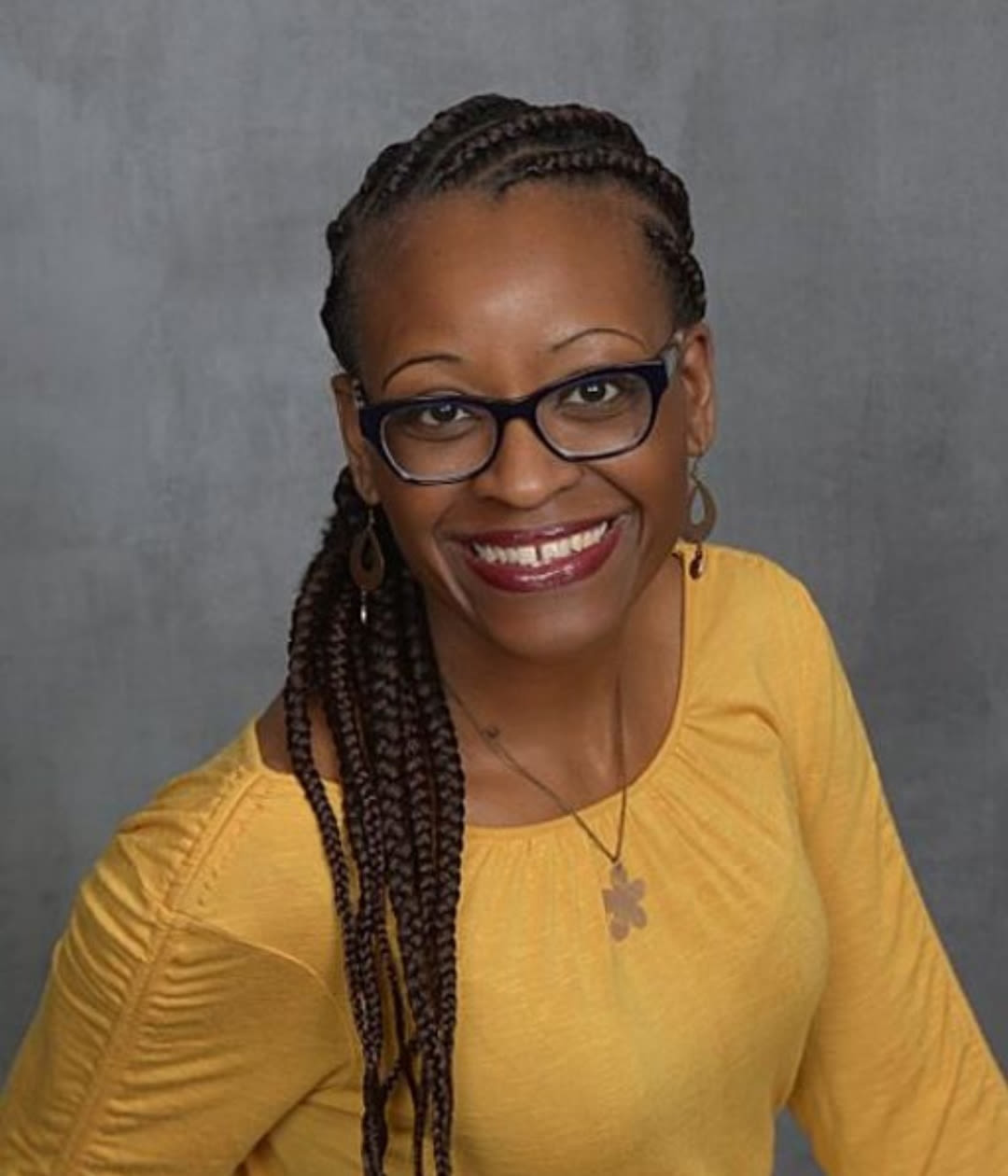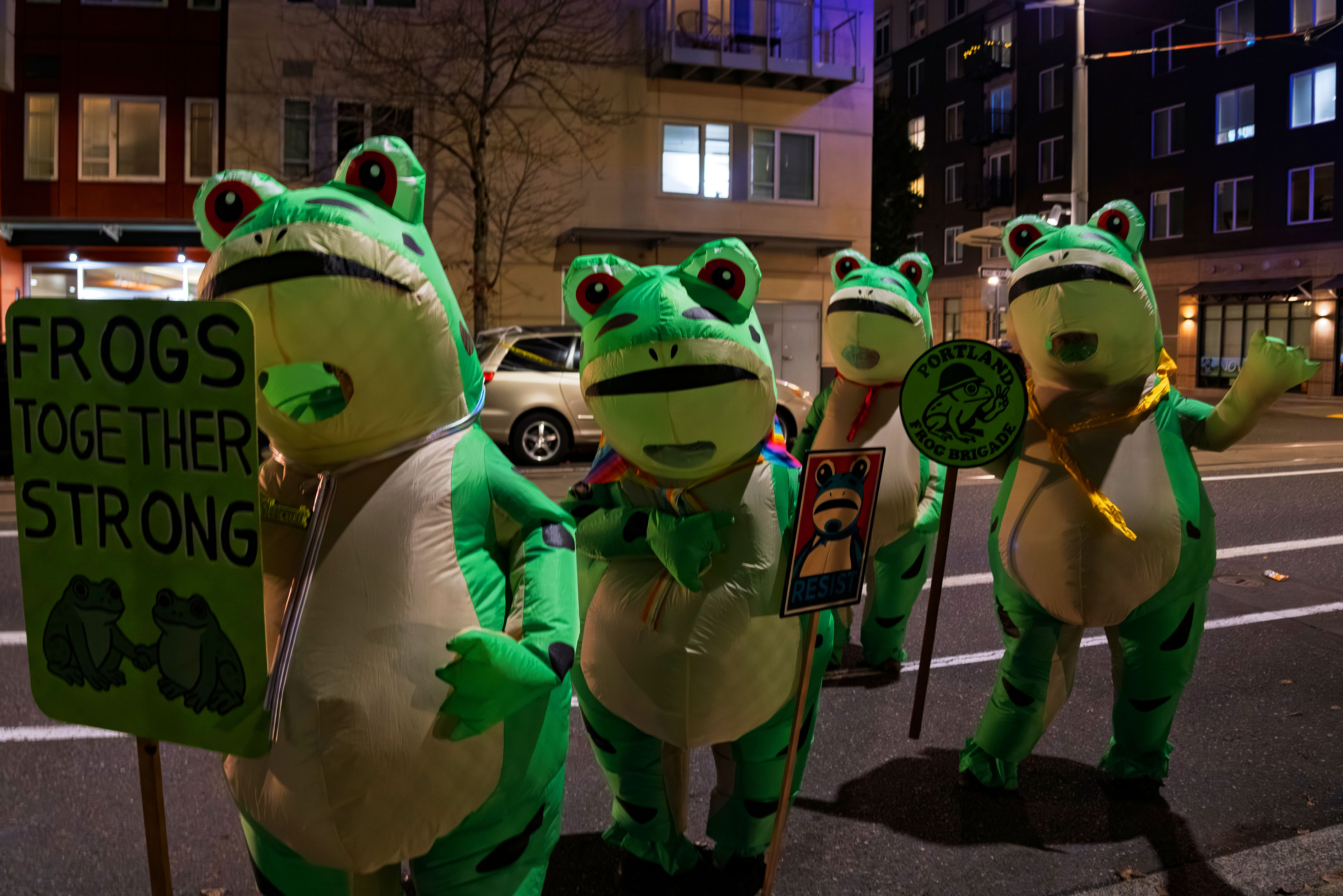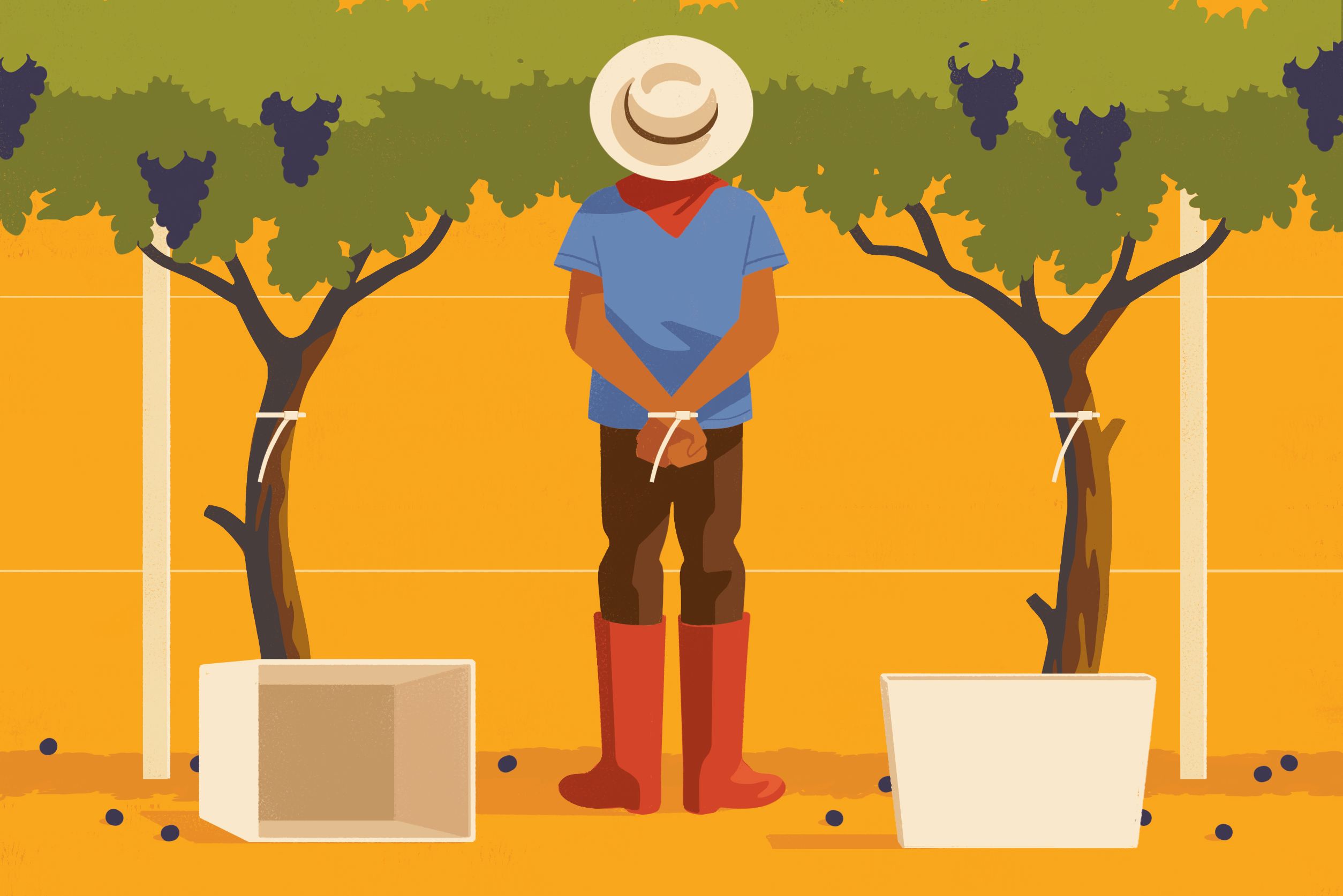Dr. Markisha Smith Has Some Advice for Mayor Ted Wheeler

Smith will advise Mayor Wheeler on racial justice and equity issues.
Even his most ardent supporters might, at this stage, conclude that Portland Mayor Ted Wheeler could use some solid advice on racial justice and equity issues.
The mayor must think so, too. Last week, he tapped Dr. Markisha Smith, the pull-no-punches former educator who heads the city’s Office of Equity and Human Rights, to be his special adviser on all issues involving racial justice/equity—so, essentially all issues.
Smith, who is also a single mother of a 5-year-old and a 10-year-old who’ve been in remote school for almost a year now, says she’s up for the challenge (and she’ll keep her other job too, just to keep her plate extra extra full.)
Portland Monthly asked Smith about her new job, advice for making the most of Black History Month, and the current state of the protest movement in Portland.
Portland Monthly: What made you want to take this job? It seems like a tough one.
Smith: If you don’t have a top leader really getting the information and guidance, recommendations, guidance on how to engage with communities, use an equity framework on a decision-making process then all the other things that you have in place really can’t hold up. I saw this as an opportunity to elevate the work of our office, to connect in with community in a different way, and for the mayor, what are some of those blind spots that maybe he is not aware of that really I can say, “Hey, I see this from this perspective. Let me offer this to you as you are thinking about a conversation or a decision or whatever it may be.” It’s a way to strengthen the equity work we are doing citywide, and to do that with our leader, from the top. I am making sure that we as a government structure are holding us accountable to the decisions that we make, particularly as they related to the communities we serve, especially as it relates to communities that have a reason to mistrust the things that government promises or proposes. I live this as a Black woman, and I have the blessing and the privilege to be able to do the work every day. We are infiltrating!
What is your plan for balancing both of these roles?
If I can balance the pandemic with a 10- and a 5-year old as a single mother full-time, then I can figure this out. This is a walk in the park. If you’re a working mother trying to figure this out right now—what is balance? A lot of it is going to overlap and morph with things that are already happening in the office. How do I bring these things together? That is where I will find some "balance." I am in different meetings now. There are additional things on my calendar that weren’t there before. There will be a bit of shuffling, but I think sitting down and thinking about the major items where I need to be providing advice to the mayor, how does that dovetail into work we are already doing, I will be OK.
People who take on jobs like this often do so with the understanding that they will be in the room when decisions are being made. What do you think your typical day might look like in this new role?
I think I need to be in the room. I am not interested in being tokenized. What I really want to be is intentional about the spaces that I am in—the spaces where I can dismantle the forces of oppression. And that is different than these performative things we do. I want to make sure that the expansion of this role is a way that I can offer what I have to offer and I am not just sitting on Zoom. Where can I elevate the work of equity? Where can I center the voices of community? And what are the things I am saying no to?
From a 10,000 foot view—and knowing that the Black community doesn’t speak with one voice, that even within a single family there isn’t one voice— how do you think people in the BIPOC community view the mayor, post election?
That’s a good question, and you’d have to ask those folks! But I think collectively, there is a wariness around government, and whoever is in that. I think what we have to be doing as individuals who work in government is acknowledging the trauma that our policies and practices have caused communities. We have to work towards restorative conversations that acknowledge that. And think about how we co-create solutions that begin to build trust. It is not just the mayor. It’s bigger than that. It’s the institution. That’s what I am hearing from folks—we need to acknowledge some things. (For example), I’ve been having conversations at the city level, there are a large percentage of folks in Black communities and communities of color that don’t trust the vaccination process. And I think we aren’t acknowledging that. There is that history, right? We have to be about—let's acknowledge, let’s take a breath. Here we are just like, let’s push needles into people’s arms and give them vaccines, or let’s criticize folks, about why don’t they want to save themselves and others. We are quick to blame. We don’t think about the historical background.
What do you think about all the mutual aid networks that have sprung up around Portland? That movement is both heart-warming and a bit of a reproach to government.
It is a call to action. My role, as someone who is working in bureaucracy, I need to step up. There are people in need. While we are scrambling and trying to get ourselves together, there are other folks who have been able to figure that out quicker without having to jump through some hoops. If we talk about really dismantling systems of oppressions, not doing business in the same way, in this white supremacist culture we live in, that we have to do things in a particular way—if we are saying that is an impediment (then maybe) we don’t have to do things this way, just because we have been doing it that way for 100 years. We found out that a lot of what we had been holding onto didn’t work in 2020.
What are the policy areas you plan to focus on in the next six months or a year of this job?
Definitely jobs for youth. What that looks like in our current landscape will require some creativity. Other things that are really important—for me, it’s going to be houselessness. Homelessness, how are we using an equity framework, through our city core values of anti-racism? The same will be true for economic recovery. Community policing, that is another, obviously. How are we thinking about things in a way that we haven’t before? How does my expertise plug in when we start having a more in-depth conversation?
How have you dealt with blowback and criticism of your work?
I got a lot of hate email this summer. It was not pretty. I have never dealt with anything like that before. It comes with having a role like this. I have been very vocal about things. I chose the time I speak out, very carefully. Just having the opportunity to talk about it with folks who have had similar sorts of things happen to them, I got support around being able to report any similar incidents. In a position like mine, people are going to have reactions to things, and they are not always going to agree.
What are your thoughts on the current state of the protest movement in Portland?
I have my opinion. I think in the early stages of what was happening, particularly after the murder of George Floyd, it really was about that and other incidents that had been happening across the country for years and years. For me, I think, I question, when did it shift from that, and when did it shift from being about Black Lives Matter to something else. And what that something else is, I’m not going to speak on. But for me, I wonder, is this still really about Black Lives Matter? Is this still really about what we were saying in the aftermath of Mr. Floyd’s murder? And if it is, great, we need to continue to elevate those voices and push our systems. If it if not, then what is it about now? Is it about what it was about in June?
Finally, we’re at the start of Black History Month. How would you suggest people celebrate?
Educate yourself! There are so many little known facts that people don’t know, people of color included. I was not inundated with this information when I was in school. That is easy—there are so many things available to us online, things you can be reading to change the narrative. I think about Black History or Hispanic Heritage Month—well, we have to start someplace. This has been the foundation to get us to think, year-round, how are we celebrating Black folks, and their contributions, past and present.




